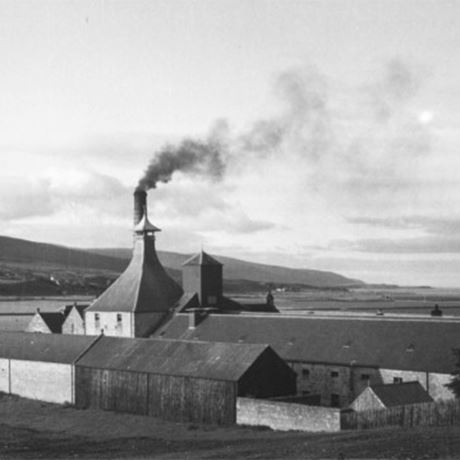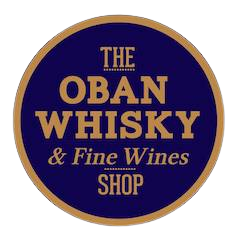
- October / 12 / 2022
The History Of Whisky; A Complete Guide
If you have been lucky enough to taste some of the most prestigious whisky, you will agree that it is more than just a drink; it is a taste sensation that differs between every sip. Whisky can be enjoyed by itself or as part of a drink and in a range of scenarios; whether you enjoy your whisky as an evening drink after a hectic week at work or you drink it as part of a special occasion, it has been tailored over the years to be savoured by everyone who drinks it. But do you know where it came from? Do you know the origins and the history behind your favourite distilled spirit?
Here at Oban Whisky & Fine Wines, we have celebrated whisky for several years, bringing some of the finest bottles to our store ready for our clients to enjoy; over time, we have enjoyed spreading information and knowledge about whisky. Whether you are searching for something specific or ready to try something new, we are always more than happy to help you find the right bottle.
But if you are ready to learn more about the heritage and the history around the nectar that is whisky, you are in the right place; throughout this article, we will cover as much as we can regarding the history and the development of whisky. If you have any questions or queries, we are always more than happy to help in any way we can, but for now, let’s delve into the wonderful world of whisky!
‘Whisky’ – What Is The Origin Of The Word
Whisky is a well-known drink worldwide, with some of the world’s finest bottles coming straight out of Scotland, so it may not surprise you that the word ‘whisky’ comes from the Scottish language, Gaelic. The word comes from the Gaelic ‘Uisge Beatha’ and ‘Usquebaugh’, which unsurprisingly translates to ‘Water of life.
Gaelic is the language found in native parts of Scotland; it is still widely spoken across Scotland, more so in the Outer Hebrides and can be heard in traditional music across the country. It is estimated around 55% of Scottish people still proudly speak Gaelic.
Do You Know What Whisky Is Made From?
It is worth noting that whisky originally was not made to be drunk; as the translation from Gaelic suggests, ‘water of life, it was designed to be used as medicine. It was used widely as an internal anaesthetic and an external antibiotic; due to its alcoholic properties, it was deemed safe to be used as a sterile liquid.
Sometime between 1100 and 1300, monks travelled to Ireland and Scotland, bringing distilling techniques that spread vastly across the countries. From their home country, wine was difficult to get hold of, so they mastered turning barley beer into a liquor, what we proudly know as whisky today. The process of distilling was limited up until around the 15th century, where until this point, it was only allowed in monasteries and apothecaries.
Around this time, distilling techniques were made around the globe as both Irish and Scottish migrants left for places such as North America.
Even though there are many whisky varieties, they all start the distilling process similarly: a simple grain mash. This mash will likely be made up of Barley, Rye, Corn or wheat, sometimes even a mixture of these grains, with the barley occasionally malted. Once the grain has been combined, it is combined with a water and yeast mix; this begins the fermentation process. This process involves the yeast converting the grains from starches into sugar, which during the entire journey this mixture goes through, turns it into alcohol as we know it today.
The mixture is then run through a still, sometimes multiple times; during this process, it is heated up into a liquid form of concentrated vapour; once it has finished working through the still, it will appear at the end as a clear liquid, which is distilled alcohol.
Nearly all whiskies are barrelled for several years; the age of the whisky you enjoy drinking will depend on how long it has been steeping in a barrel. The barrel ageing process transforms the clear liquid that appears at the end of the still into the dark rich colour whisky you are used to seeing. This is because the barrel allows the wooden flavours to pierce the liquid; it darkens the alcohol and finally calms the flavour into a smooth, enjoyable taste.
You will find that most whisky on the market today is bottled once it reaches an alcohol volume of 40 per cent (ABV, 80 proof or even a little higher, with some straight whisky reaching 140 proof.)
What Are The Different Types Of Whisky?
Whisky has grown continuously for decades, a trendy drink not just in Scotland but across the world, with some of the finest bottles coming in at prices that are well into the thousands, but do you know the different types of whisky? Some whiskies are regulated across the world, such as Bourbon, this type of whisky must meet specific criteria to be allowed to use that name on their label, whereas a lot of generic whiskies can be made in a range of ways.
Each production method has its characteristics, which are enjoyed and savoured by different whisky drinkers, so let’s delve into the different types of whisky available on the market today.
Blended Whisky
The name gives away what this type of whisky is, but it is a blend of several whiskies that have gone through the ageing process already; more than likely, it will include many different grains that have been combined. Most distilleries will have a blended whisky available within their range and brand any bottle that doesn’t meet the high criteria for a pricier bottle. This is one of the most common whisky people may have at home.
Single Malt
This is the term used to describe a bottle of whisky made with one malted grain; it will also have been distilled at one single distillery; Scottish single malt whiskies are incredibly popular due to their smooth texture.
Irish Whisky
As the name suggests, this type of whisky must be distilled in Ireland, the most common option being a blended whisky, but you can find single malts that have been distilled in Ireland. Irish whisky is an excellent option if you are looking for something light, smooth and pleasant to drink; this is because, more often than not, you will find a triple-distilled bottle made from unmalted barley and aged for three years minimum.
Scotch Whisky
The most popular whisky on the global market is scotch whisky, which includes single malt and blended varieties. Scottish whisky has a distinct smokey flavour from the malt dried over a fire. Still, it is worth noting that different regions across Scotland produce different flavours, textures and tastes of whisky.
Bourbon
This is one of the most highly regulated whiskies on the market; it must be distilled in America, produced with a minimum of 51% corn, distilled to more than 160 proof, and barrelled no more than 125 proof. Bourbon taste can vary greatly, but it generally has a robust taste.
Rye Whisky
Although there is no specific part of the world this type of Whisky needs to be made in, you are more than likely to find it in North America; this type of Whisky focuses on the grain Rye. More often than not, it has spicy and bold flavours associated with it.
How Do You Drink Whisky?
Believe it or not, there is no wrong or right way to drink whisky; it all comes down to personal preference; however, if you spend a more significant amount of money on a speciality whisky, we recommend drinking it neat. Another way to drink whisky is on the rocks or even with a splash of water added to the glass; this allows for a slow drink where the aromas and flavours develop as your drink it; this happens due to the water combined with the whisky, this can be particularly enjoyable with higher proof whiskies.
Not only can you enjoy a whisky as a drink in its own right, but it can also be enjoyed as part of other drinks, whether you have it as a simple drink with a mixer such as soda. Or maybe you would prefer a gentlemen’s drink of an Old Fashioned cocktail, which has been savoured by many whisky drinkers over the years and comprises a whisky decorated with orange, sugar and bitters to create a truly unique drink.
When it comes to limits of whisky, there aren’t any; you can enjoy it any way you want to, whatever your personal preference is; all that matters is your savour and enjoy the tastes as they erupt in your mouth set your taste buds alight.
When Was The First Scottish Whisky Distilled?
When you think about whisky, you are immediately transported to the highlands of Scotland, sitting next to a roaring fire, enjoying a whisky to warm you through after a long day of outdoor adventures, but when was the first whisky distilled in Scotland? As we have touched upon earlier, there is evidence that the first whisky distillery was brought to Scotland by Christian Monks. However, there is no evidence to suggest that the farmers in the highlands did not distil their own before the monks arrived in the country.
In the famous book ‘Scotch Whisky’ written by Mr J Marshall Robb, he says, ‘The oldest reference to whisky occurs in the Scottish Exchequer Rolls for 1494, where there is an entry of ‘eight bolls of malt to Friar John Cor wherewith to make aqua vitae, this refers to an old measurement used for liquids in the Scottish ages.
Another historical moment for whisky in Scotland was in 1690 when the first mention of a distillery in the Acts of the Scottish Parliament appeared. It referred directly to a distillery owned by a Scot called Duncan Forbes of Culloden, a famous location known for the battle of Culloden in 1746.
Another reference is a distillery in a private home in 1614, located in Gamrie in Banffshire. It is referred to in the Register Of The Privvy Council; this was down to theft and whisky potentially being stolen as it references some ‘aquavitie’ being taken.
Contact Oban Whisky And Fine Wines For Globally Recognised Whisky
Contact Oban Whisky today to learn more about the history of whisky and how you can incorporate this knowledge into your own business. Not only that, but you can find some of the world’s best whisky right here on our website; we deliver across the UK to anyone looking for premium whisky and rare bottles.
Oban has been providing world-class whiskies for several years, and we would be proud to help you get started in this delicious industry. With our extensive knowledge and years of experience, we can guide you through every step of the process to find the product for your specific tastes. Whether you are looking for a whisky to enjoy in your home on the weekend, to give as a gift, or you are looking for a collector’s whisky, we have a vast collection.
Get in touch with us today to learn more! Our team is always happy to help in any way we can.



